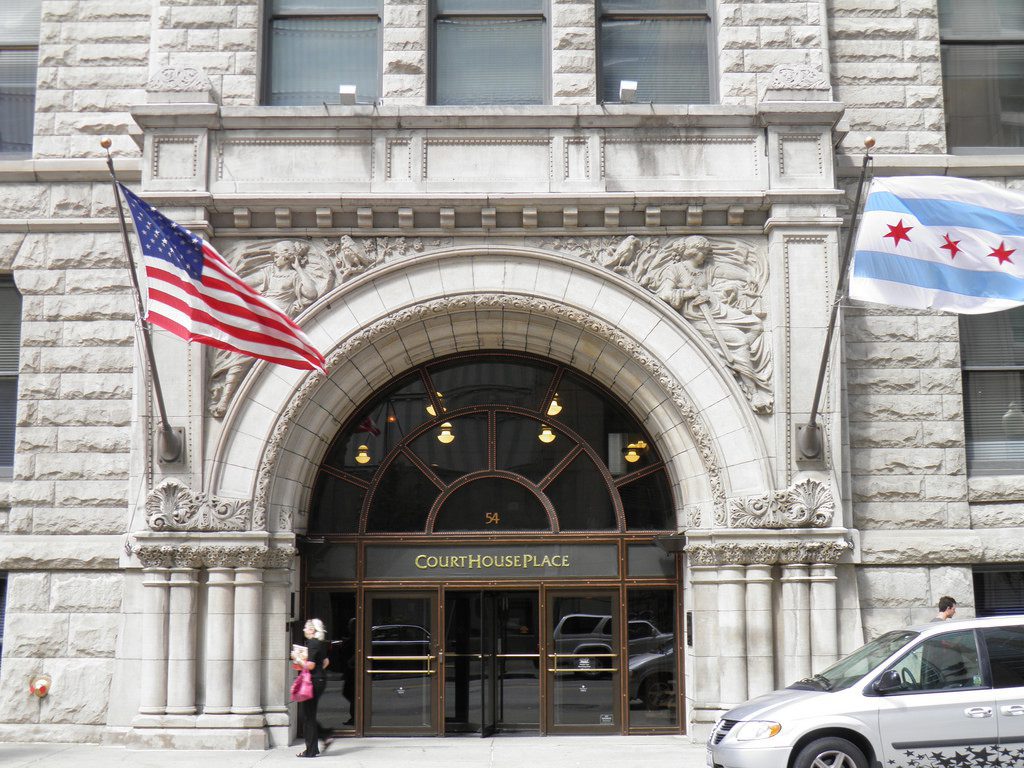
The University of Illinois has deemed Chicago as the city of big scandals and the corruption capital of America.
In 2013, there were 45 public judicial corruption convictions. Over the past 38 years, there have been a staggering 1,642 public corruption convictions. Chicago’s Judicial District has held the number one spot for the most corruption scandals in the U.S. for two years in a row.
Four Illinois governors have faced conviction, with Governor Rod Blagojevich being the most memorable. Blagojevich was the first to be impeached and removed from office. At trial, he was found guilty and sentenced to 14 years in Federal Prison.
Statistically, Illinois is the third-most corrupt state when comparing state by state, according to a 2015 article by the Chicagoist. New York appears in first place with 2,657 public judicial convictions, and California comes in second with 2,549.
Judicial corruption in Chicago dates back to the city’s incorporation in the 1800s. Chicago has been a “one party town,” since the 1920s. The Democratic consortium controlled every branch of government: Executive, Legislative, and Judicial Branch.
The federal probe of the Cook County Circuit Court system began in the 1970s with prosecutor Jim Thompson. He successfully exposed several city council members, AKA aldermen, under the broad use of the Federal Mail Fraud statute.
Operation Greylord
One of the biggest investigations into Chicago’s governmental corruption is known as, Operation Greylord. In 1976, the FBI, along with the IRS Criminal Investigation Division, the U.S. Postal Inspection Service, and the Chicago Police Department of Internal Affairs took on the task of investigating systematic corruption in the Chicago.
Operation Greylord used a plethora of undercover efforts with the help of authentic judges and lawyers, who willingly posed as crooked officials.
On March 15, 1984, Harold Conn, a 57-year-old court clerk, was found guilty of 10 racketeering and extortion charges. His case was the first to be heard in federal court. Conn was the “bagman” for judges who were willing to exchange favorable rulings for a fee.
Conn had been working for the court 27 years before his arrest. He was working in the traffic court division at the time of the Greylord investigation.
During Conn’s eight-day trial, 27 secretly recorded tapes were submitted as evidence. The tapes included conversations between Conn and undercover agents posing as defense attorneys. According to The New York Times, he had taken $1,600 in payments from agents. The payments were connected to seven different cases.
Conn made a mockery of the Cook County Court system by implementing “two systems of justice.” One form of justice for those who could and would pay and another for those who could not.
Alongside the FBI stood strong allies working within Cook County’s political community and the local police department. They busted: 92 judges, 48 lawyers, eight police officers, ten deputy sheriffs, eight court officials, and one state legislator. Nearly all were convicted for some form of corruption, according to Chicago Tribune archives.
In 2004, the FBI investigated 850 cases, sought 655 indictments, and landed 525 convictions.
The primary victims of judicial corruption were the citizens, as public trust was deliberately abused. Profiteering in government strikes at the core of justice for all, social order, and lawfulness.
Today, citizens suffer a decline in governmental services because an overwhelming amount of taxes collected is used to pay for the cost of investigating and prosecuting public corruption. Bribery and Graft costs Illinois approximately $500 million a year.
Teddy Roosevelt said, “Unless a man is honest we have no right to keep him in public life, it matters not how brilliant his capacity, it hardly matters how great his power of doing good service on certain lines may be… No man who is corrupt, no man who condones corruption in others, can possibly do his duty by the community.”
An impeccable character is an essential virtue for public servants. If a person desires to serve the public, they must display integrity in both their personal and public lives.
There are, perhaps, a number of ways to change Chicago’s reputation as America’s most corrupt city. It may take time, but there are solutions to fix the judicial corruption in Chicago. It begins with awareness of Chicago’s sorted political corruption.
First, demand increased transparency accountability and liability. The government can help by appointing additional inspector generals and honest public officials. Encouraging more citizens to participate in government by running for office, and having more residents get involved at the local level to monitor current elected officials. In addition, talking openly to friends and neighbors about the need for honest government. A unified citizenry, acquainted with Chicago’s penchant for unscrupulousness behavior, can work toward ending the city’s enduring one party rule and corrupt political machine that has plagued Chicago for so many years.
Written by Breanna Harris
Edited by C. Milne and J. Smith
Sources:
The New York Times: Jury Finds Clerk in Chicago Guilty
Chicagoist: Chicago’s Judicial District has the Most Corruption in the US
ABC 7: Blagojevich ‘stunned,’ guilty on 17 of 20 counts
Chicago Tribune Archives: Inside Greylord
Top and Feature Image Courtesy of Carol Vinzant’s Flickr Page – Creative Commons License



